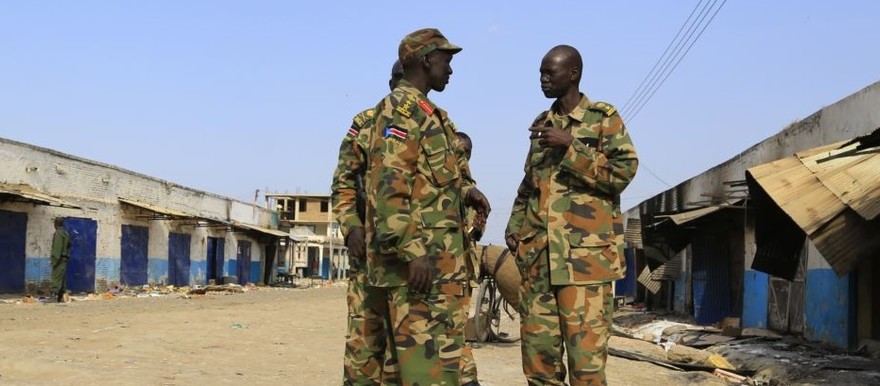Clashes between different South Sudanese government forces erupted on Tuesday night in Malakal, a city on the bank of the Nile River and capital of oil-producing Upper Nile State. Radio Tamazuj provides some background information for observers trying to make sense of reports from the area:
1 – City devastated by conflict – Malakal was once one of South Sudan’s three most populous cities, capital of the Upper Nile region. During fighting in late 2013 and early 2014 the city was devastated and largely abandoned. Even before the latest fighting, much of the city’s population had still not returned and were living at the UN ‘protection site’ on the outskirts of town or had fled elsewhere.
2 – Upper Nile’s diversity – The city of Malakal was inhabited by people from tribes of Dinka, Nuer, Shilluk, Maban and others. Though the conflict of 2013-2014 increasingly polarized South Sudanese society, the government of Upper Nile State remained ethnically diverse. The current governor is Nuer, the deputy governor is Dinka and the health minister and other senior officials are Shilluk.
3 – South Sudan’s rebels are not involved in the fighting – No forces loyal to the SPLM/A-IO rebel leader Riek Machar are present in the Malakal area.
4 – None of the involved parties have announced opposition to the government – The parties involved in violence in Malakal over the last two days are all government troops and allied militias. Army headquarters has denied reports that Maj-Gen. Johnson Olony defected, as has Olony himself.
5 – The fighting may have been sparked by an accident or a petty dispute – On the night of 21 April the first violence broke out in the town between bodyguards of the governor and forces commanded by Maj-Gen. Johnson Olony. Tensions had already been high in the town and fighting escalated the next morning, 22 April. Though none of the military units involved in the recent clashes have any overt political agenda, the fighting has potentially serious political and social implications.
6 – Shilluk and Dinka ‘militias’ – Inter-communal clashes between Dinka and Shilluk communities in areas north of Malakal preceded the clashes between different military units that began on the night of 21 April. Forces that are at least partly integrated into the national army (SPLA) or supplied by the government have been described by some officials and witnesses as ‘militias’. These include forces under the command of Johnson Olony as well as Dinka civilians in areas north of Malakal who were armed by the government to protect oil-producing areas. Olony’s forces are mostly Shilluk and have been called a ‘Shilluk militia’, but the state government previously insisted they are part of the army.
7 – SPLA ‘Commando’ and other units – Not all of the government units in Upper Nile State are recruited from the local tribes. Reports of involvement of SPLA ‘Commandos’ suggest the presence of soldiers hailing from the Dinka tribes of Bahr al Ghazal, while SPLA Divisions 1 and 7 based in the state are at least partly ethnically integrated.
8 – Repeated trauma – Malakal was overrun several times by defected SPLA-IO forces and allied Nuer militia last year. Civilians were killed during both the capture and recapture of the city. The recurrence of violence in the city yet again makes it less likely that civilians will come out from UN protection or return from displaced camps on the other side of the Nile. The population of the UN protection site is now over 27,500.
9 – SPLA investigation – The army general headquarters yesterday announced that it would investigate how the current fighting started and it has deployed reinforcements to try to quell the fighting.
10 – Areas of control – Over the last two days the military situation in Malakal has appeared fluid and chaotic. Johnson Olony’s forces control large areas on the west bank of the Nile opposite Malakal and at least parts of the city or its surroundings on the east bank.
File photo: SPLA soldiers in Malakal, 30 December 2013
Related:
Dozens killed in fighting within government forces in Malakal (22 April)
Factbox: South Sudan’s General Johnson Olony (28 Feb.)




